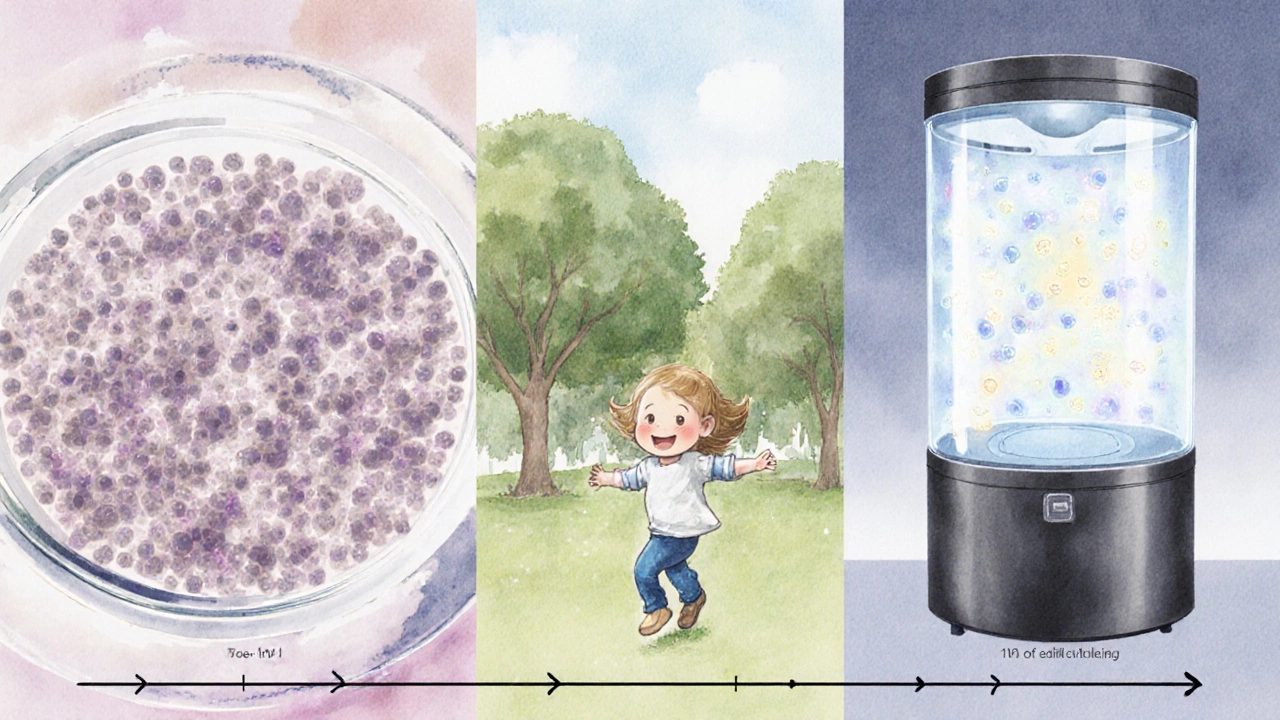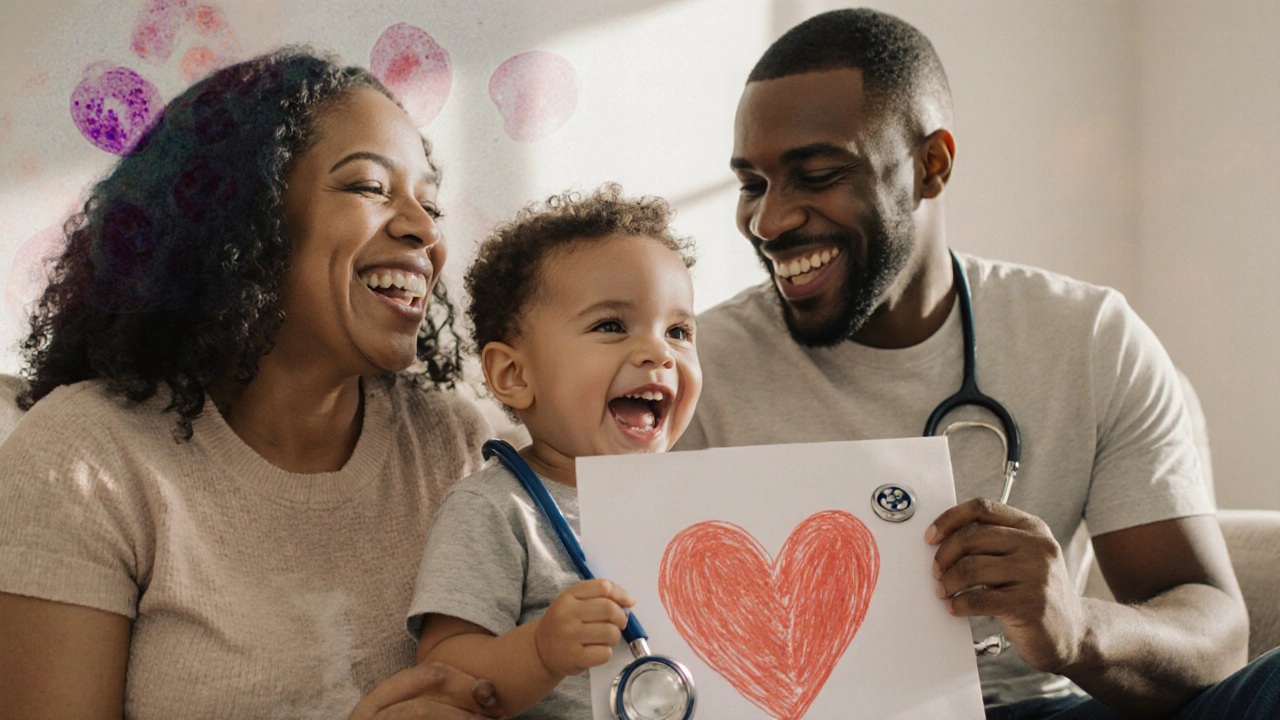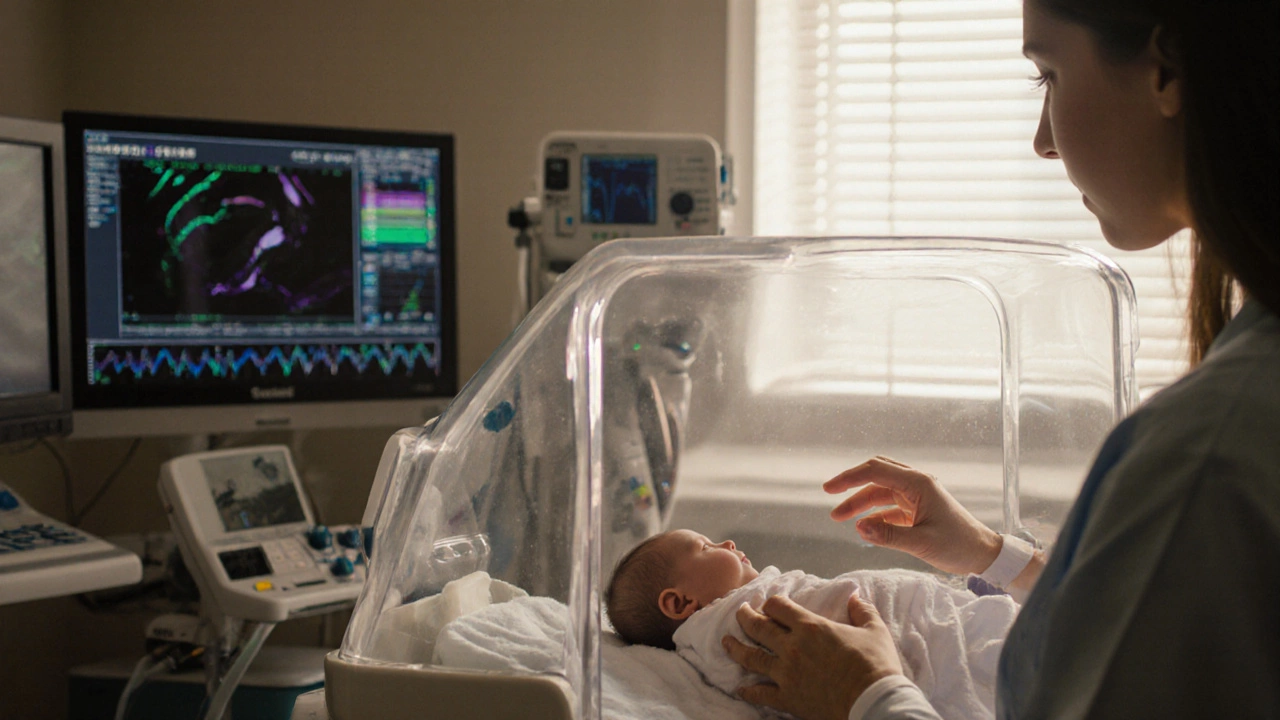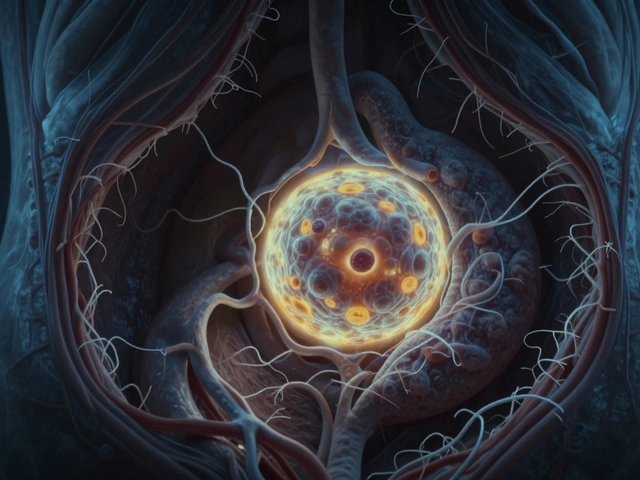IVF Health Risk Calculator
IVF Health Outcome Calculator
Estimate the likelihood of key health outcomes for IVF babies based on your specific situation.
When you hear the word IVF, you might picture a lab, needles, and a long wait. But the real question most people wonder - especially those considering it or just curious - is: Are IVF babies healthy? It’s not just about getting pregnant. It’s about whether the child born from IVF will grow up strong, without extra risks, and live a normal life. The answer isn’t simple, but the data is clear: for the vast majority, IVF babies are just as healthy as babies conceived naturally.
IVF Babies and Birth Weight
One of the first things doctors look at after birth is weight. Low birth weight is linked to higher risks of health problems later. Early studies in the 1990s and early 2000s showed IVF babies were more likely to be born under 2.5 kg. That caused concern. But today’s data tells a different story.
Research from the UK’s Human Fertilisation and Embryology Authority (HFEA), tracking over 100,000 IVF births since 2010, found that when single embryo transfers are used - which is now standard practice - the rate of low birth weight drops to match natural conception. In fact, in 2023, 87% of IVF singletons weighed over 2.5 kg at birth, the same as babies conceived naturally.
Why did it used to be worse? Back then, clinics often transferred multiple embryos to increase success rates. That led to twins and triplets, which come with higher risks of early birth and low weight. Today, elective single embryo transfer (eSET) is the norm in the UK, Europe, and North America. That shift alone cut the risk of low birth weight in IVF babies by nearly half.
Birth Defects: Slightly Higher Risk, But Still Rare
Another common worry: do IVF babies have more birth defects?
Yes, studies show a small increase. A 2022 meta-analysis in The Lancet reviewed 38 studies across 15 countries and found that IVF babies had a 1.3 to 1.4 times higher risk of major congenital anomalies compared to naturally conceived babies. But here’s the key: the absolute risk is still low. Out of 100 IVF babies, about 3 to 4 might have a birth defect. For naturally conceived babies, it’s about 2 to 3.
What kind of defects? Mostly heart issues, cleft lip/palate, or gastrointestinal problems - the same types seen in the general population. Importantly, researchers can’t say IVF directly causes them. The increased risk may come from the underlying causes of infertility itself - like advanced maternal age, genetic conditions, or hormonal imbalances - not the IVF process.
And here’s something reassuring: when you compare IVF babies born to parents with no fertility issues (like in donor egg or sperm cases), the defect rate drops back to baseline. That suggests infertility, not the lab, is the bigger factor.
Long-Term Health: No Major Differences
Are IVF kids more likely to get asthma? Diabetes? Cancer? Do they develop slower? These are the questions parents ask years after the baby is born.
A 2024 study from the University of Oxford followed over 12,000 children born via IVF since 1992. By age 18, there was no significant difference in rates of asthma, type 1 diabetes, obesity, or cancer compared to peers conceived naturally. Their blood pressure, cholesterol, and insulin sensitivity were also within normal ranges.
One small difference? A few studies found slightly higher rates of high blood pressure in young adults born from IVF. But the difference was tiny - less than 2 mmHg on average - and not enough to be considered a health risk. Experts think it might be linked to placental development during early IVF embryo culture, but it doesn’t lead to disease.
And what about brain development? A 2023 Swedish study of 5,000 IVF children found no difference in IQ scores, language skills, or behavior compared to naturally conceived children. Even in cases of twins or triplets, cognitive outcomes were similar when adjusted for prematurity.

Why Do Some IVF Babies Have Health Issues?
If IVF babies are mostly healthy, why do some have problems? The answer lies in the parents, not the procedure.
Most couples using IVF are older. Women over 35 have higher risks of chromosomal abnormalities. Men with low sperm quality may pass on genetic mutations. Both factors increase the chance of health issues - whether the baby was made in a lab or not.
Also, infertility itself can be a symptom of other health problems. Polycystic ovary syndrome (PCOS), endometriosis, or male factor infertility often come with metabolic or hormonal imbalances. These conditions can affect pregnancy outcomes.
And yes, the lab environment matters. Embryos grow in culture media for a few days before transfer. Some older media formulas had slight imbalances in nutrients or pH. But today’s media is far more advanced. Most clinics now use time-lapse incubators and personalized media tailored to the embryo’s stage. These changes have improved embryo health significantly.
What Can You Do to Maximize Your IVF Baby’s Health?
If you’re planning IVF, here’s what actually makes a difference:
- Choose single embryo transfer. Twins and triplets carry way more risks than singletons. Even if it means more cycles, one healthy baby is better than two with complications.
- Get pre-treatment screening. Genetic testing (PGT-A) can screen embryos for chromosomal issues. It’s not for everyone, but if you’re over 38 or have had miscarriages, it can reduce the risk of problems.
- Optimize your health before IVF. Quit smoking. Maintain a healthy weight. Control blood sugar and blood pressure. These steps improve egg and sperm quality - and the baby’s future health.
- Ask about culture media. Not all clinics use the same lab protocols. Ask what type of media and incubators they use. Clinics with time-lapse systems and low-oxygen environments have better outcomes.

Myths vs. Reality
There are still myths floating around:
- Myth: IVF babies are more likely to be autistic. Reality: A 2021 study in JAMA Pediatrics found no direct link. Any small increase is tied to parental age and multiple births - not IVF itself.
- Myth: IVF babies are weaker or more fragile. Reality: They cry, sleep, grow, and hit milestones just like other babies. Parents of IVF kids report no difference in energy, appetite, or resilience.
- Myth: IVF causes long-term hormonal problems. Reality: No evidence shows IVF children have abnormal puberty, fertility, or hormone levels as adults.
The Bigger Picture
Over 8 million babies have been born worldwide through IVF since 1978. In the UK alone, about 1 in 50 children today were conceived using assisted reproduction. That’s over 15,000 babies a year.
And yet, the vast majority grow up without any health issues linked to how they were conceived. They go to school, play sports, get jobs, and have children of their own - often without ever knowing they were IVF babies.
That’s not luck. It’s science. Decades of research, better technology, and smarter practices have made IVF safer than ever. The goal isn’t just to get pregnant. It’s to bring a healthy child into the world. And today, IVF delivers that - more reliably than ever before.
Are IVF babies more likely to have birth defects?
There is a slightly higher chance - about 1.3 to 1.4 times more - compared to naturally conceived babies. But the absolute risk remains low. For every 100 IVF babies, around 3 to 4 may have a birth defect, compared to 2 to 3 in the general population. This small increase is likely due to underlying infertility factors, not the IVF procedure itself.
Do IVF babies have lower IQ or developmental delays?
No. Multiple large studies, including one from Sweden tracking over 5,000 children, show no difference in IQ, language skills, or cognitive development between IVF babies and those conceived naturally. Even children born from donor eggs or sperm develop at the same rate.
Is IVF safer now than it was 20 years ago?
Yes, significantly. Single embryo transfers have replaced multiple transfers, reducing twins and preterm births. Modern culture media, time-lapse incubators, and genetic screening have improved embryo health. Today’s IVF babies are healthier than those born in the 1990s or early 2000s.
Can IVF cause long-term health problems like diabetes or heart disease?
No strong evidence supports this. A 2024 Oxford study followed IVF children into their late teens and found no higher rates of diabetes, obesity, or heart disease. A minor increase in blood pressure was noted, but it was clinically insignificant and not linked to future illness.
Should I worry about my IVF baby’s future fertility?
There’s no evidence that IVF affects future fertility. Children born from IVF grow up to have normal reproductive systems and have children naturally. Studies tracking the first generation of IVF babies into adulthood show no issues with sperm count, ovulation, or hormone levels.
What Comes Next?
If you’re considering IVF, the best thing you can do is talk to a fertility specialist who uses current guidelines. Ask about their success rates with single embryo transfers, their lab protocols, and whether they offer genetic screening. Don’t be afraid to shop around - clinics vary in quality and approach.
And if you’ve already had an IVF baby? Celebrate. You’re part of a generation of parents who helped reshape reproductive medicine. Your child’s health isn’t defined by how they were conceived - it’s defined by the care they receive, the love they’re given, and the future they’re building. And that’s the same for every child, no matter how they arrived in this world.





